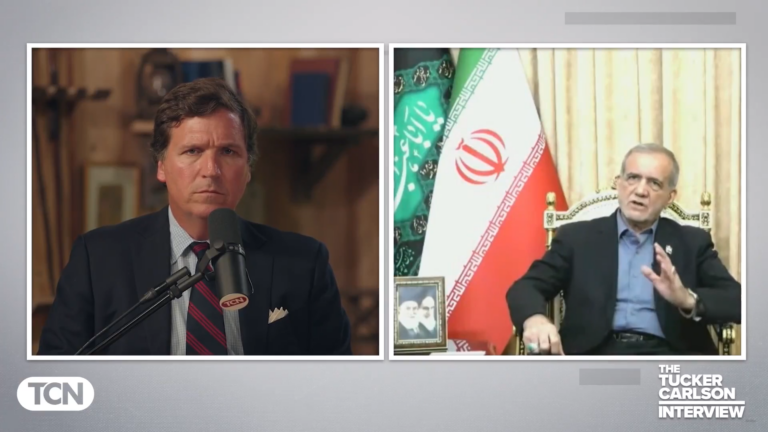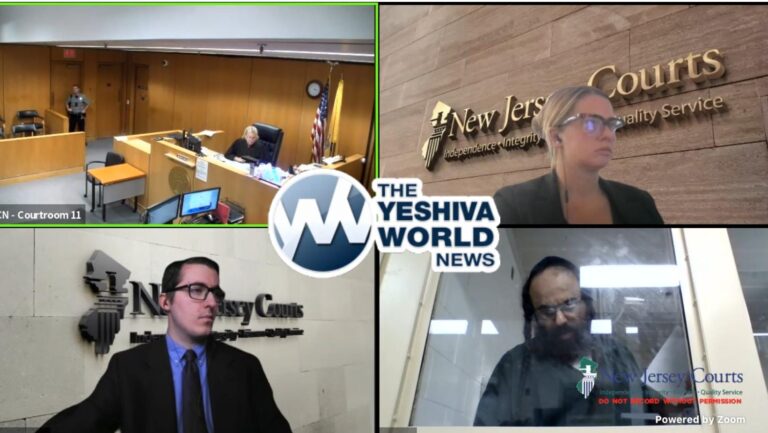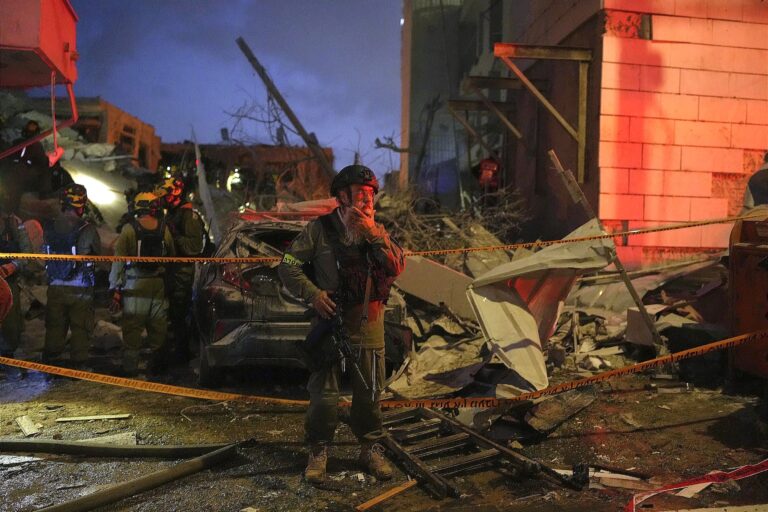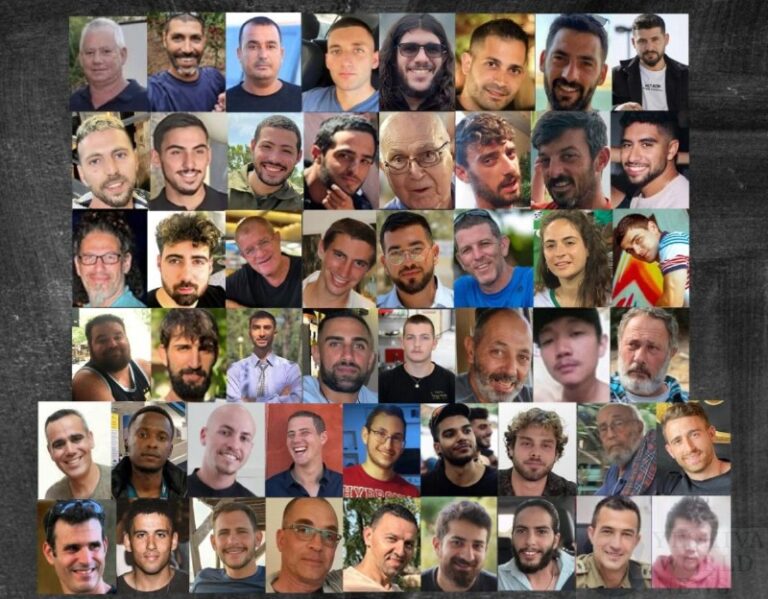 Peace in the Middle East is vital for Israel’s security. It would be beneficial for Israel to sign a long-lasting peace agreement with the Palestinians and the Arab nations around the world. The ongoing conflict is detrimental for the State of Israel and places its future in danger. The cost of constant war places a burden on the Israeli government, and has cost it too many lives thus far.
Peace in the Middle East is vital for Israel’s security. It would be beneficial for Israel to sign a long-lasting peace agreement with the Palestinians and the Arab nations around the world. The ongoing conflict is detrimental for the State of Israel and places its future in danger. The cost of constant war places a burden on the Israeli government, and has cost it too many lives thus far.
Israeli citizens live in constant fear of yet another attack that might be perpetrated by cruel and heartless monsters. The horror of a new malicious terror attack relentlessly disrupts their daily lives. People dread to board busses, businessmen are frightened to frequent restaurants, and children are scared to go to school. Women fret over the notion to go shopping in a mall, parents of Israeli soldiers continuously fear that they won’t see their children ever again, and students cannot learn serenely in their own Yeshiva’s study halls. Israeli citizens are not even safe in their own homes; terror overtakes them as they’re peacefully asleep at night due to their constant nightmares. Pictures of slashed throats, scorched limbs and shrapnel filled bodies hover in their minds, while images of bombed buses, schools wrecked by rockets, and bullet-ridden cars are vividly displayed before their eyes. Peace truthfully seems to be the only option and solution.
Israel wants peace, yet at every attempt it met resistance along the way. Israel wants to live in harmony with its neighbors; however, its quest for tranquility is constantly wedged by obstacles that persistently surfaces anew.
Israel merely sought freedom and independence in 1948 when they were invaded by neighboring Arab countries – the first conflict threatening its survival erupted. It was victorious and pushed back while “occupying” land that it conquered during the war — essentially to maintain its security. Israel made concessions for peace; it returned much of the land for a peace agreement and signed the 1949 Armistice Agreements; Israel sought tranquility.
It didn’t serve it well; the barrier still blocked its quest for peace. In 1956, Egypt violated the agreement and closed the Straits of Tiran and the Suez Canal for Israeli shipping instigating the Sinai War. Israel, with help from France and Britain, was triumphant once more, and captured the Gaza Strip and the Sinai Peninsula. Yet after enormous pressure, Israel compromised once more and handed the area back to Egypt; it wanted tranquility.
This too proved Israel wrong when another obstacle emerged. In 1967, Egypt once again dishonored the ceasefire they signed with Israel and militarized the peninsula. It was joined in its effort to annihilate Israel by Jordan and Syria and was aided by Iraq, Kuwait, Saudi Arabia, Sudan and Algeria. Israeli forces emerged victorious yet again and delivered a devastating blow to their enemies. They pounced hard and withheld strategic locations critical to the defense of their nation. Israel wanted peace; however, it hit a cul-de-sac with the signing of the Khartoum Resolution.
The Arab nations were still bloodthirsty and stood in the way of peace. In 1973, they surprised Israel with an attack on multiple fronts. Israel courageously fought the bitter battle, and its forces advanced deep into Syrian and Egyptian territory — just about reaching Cairo and Damascus. However, Israel was thirsty for peace and came to the negotiation table to sign an agreement.
In 1978, Camp David Accords were signed between Israel and Egypt. Israel was to evacuate Sinai in return for peace. Egypt got billions of dollars in aid in addition to acres of land in exchange for peace. Israel evacuated Sinai along with Yamit – a settlement built for security purposes – with all its habitants. It resulted in a “cold peace.” Egypt still turned a blind eye to terrorists infiltrating Israel and still regarded it as its enemy. Recently – with the aftermath of the Egyptian uprising – the “Muslim Brotherhood” further threatens stability in the region.
The PLO was one impediment in a series of hurdles to Israeli peace. Under the auspices of master terrorist Yasser Arafat, the PLO carried out terror attacks against Israeli civilians. The Israeli military surged into Lebanon to stave off attacks. The IDF reached the tactical location of the Litani River only to withdraw – merely leaving a buffer zone — for the promise of peace. Its withdrawal resulted in a barrage of rocket attacks on the Galilee.
In the nineties, Israel signed a series of agreements including the Oslo Accords and the Wye River Memorandum. It handed over control to the Palestinian Authority and recognized their request for a Palestinian state. In 1998, then-Prime Minister Ehud Barack was ready to return 98% of the land to the Palestinians, but the Palestinian response was an unequivocal no. They opted for the Intifada instead – unpityingly killing thousands of innocent civilians. Horror whacked the nation daily as its citizens became immune to pictures of death and destruction. It was yet another blockade in the path to peace.
In 2000, Israel completely pulled out of Lebanon. It was yet another concession for peace. However, as in the past, it met with resistance once more. Hezbollah became its hostile backyard neighbor and stocked up on rockets and missiles. The Second Lebanon War occurred after terrorists infiltrated Israel and kidnapped soldiers that merely wanted to protect their fellow countrymen. The war ended with a ceasefire, but Hezbollah has yet to stop building missiles. It remains a threat to Israel’s security and calmness in the region.
Israel unilaterally evacuated Gaza in 2005. The appeasement was quite an expensive one. Approximately 55,000 Israel Defense Forces troops painstakingly evacuated 8,100 Israelis from their homes. It became a painful chapter in Israeli history. Homes were uprooted, cemeteries were dismantled and Shuls were scorched; yet, its aftermath did not bring along peace. Hamas is now controlling Gaza and oversees constant rocket attacks; terror attacks, mortar shells and a war in 2008 were received in return.
The latest obstacle to peace came from an unexpected place. After years of steadfast support from the United States, Israel now encountered its latest obstruction to tranquility in Washington. Israel trusted its friend and ally to stand up for them, as it did in the past, and assist it in their quest to peace. Israeli diplomats knew that America will ensure a secure Jewish state and will let them negotiate on their own. They were on familiar terms with regards to its borders, settlements, Jerusalem, Palestinian right to return, among other vital details essential to Israel’s survival. They placed trust in Washington that it would let them make the decisions vital for their security.
However, the United States President, Barack Obama, didn’t just throw Israel under the bus, he impeded the entire peace process for years to come. He became the latest hurdle in the Israeli-Palestinian peace process. What was perceived as the standard until now became nullified; its essence in danger once more. Palestinians simply gained bargaining chips from a president who is sympathetic to the Palestinian cause. After the President “demanded” Israel to stop construction, he went further and required Israel to return to its pre-1967 ceasefire borders and establish these defenseless lines as permanent border – with limited swaps of land. While Israel’s borders and its settlements were part of the negotiations until now, it is no longer part of the peace talks — it has now become a precondition. The naïve President who persistently seeks to appease the Muslims around the world handed the Palestinians more leverage to their agenda; they are now out to gain and with U.S. support.
Israel cannot base their borders on the Green Line; it is indefensible and dangerous. The 1949 Armistice Lines were never perceived to be future borders – it was merely a “Road Map” to peace. Now, along with the precondition of halting Israeli construction, Palestinians will demand the impossible from Israel and peace will stall again. Israel cannot afford to make another concession in return for nothing on the expense of its citizens’ lives. They cannot agree to such preconditions any longer – especially without the promise of return for Palestinian refugees and after a Hamas-Fatah unity deal. President Obama made peace in the Middle East impossible; he simply placed Israel on defense once again in a world that’s seeks its destruction. He is not another Carter who paved the way to tranquility on the southern border for three decades; he hampered Israel’s peace efforts and ruined it for them for years to come.
Dave Hirsch is a political analyst and columnist. He can be reached at [email protected]
NOTE: The views expressed here are those of the authors and do not necessarily represent or reflect the views of YWN.











5 Responses
Mr. Hirsch writes, in his 14th paragraph: “After the President [Obama] ‘demanded’ Israel to stop construction, he went further and required Israel to return to its pre-1967 ceasefire borders and establish these defenseless lines as permanent border – with limited swaps of land.”
Mr. Hirsch is not alone in this complete misunderstanding – actually, I would say it is a misrepresentation – of President Obama’s comments. All the right-wing panderers to Jewish voters’ concerns for the security of Israel have made the same misrepresentation of the President’s remarks. The president has not requested or demanded any Israeli “withdrawal” to the ’67 borders. He said, look at the ’67 borders, and then do some swapping, face-to-face, Israelis and Palestinians. He also made it clear that the US will oppose any UN effort at recognizing a Palestinian state prior to resolution of the borders between Israel and representatives of the Palestinians. That’s all he said, and it is consistent with all that his predecessors have said, going back to LBJ in ’67.
The persistence of the president’s opponents in characterizing his remarks as a demand that Israel withdraw to the ’67 borders is a big lie, intended to tear into his support among the majority of American Jewish voters.
There are genuinely difficult issues in establishing a permanent peace settlement among Israel, its sovereign neighbors and the non-Jewish residents of the Occupied Territories. And the bad faith in the process since 1947 has clearly been almost entirely by Israel’s neighbors and other opponents of the State of Israel. But another recitation of Arab bad faith is not going to accomplish what it has not accomplished in the last 63 years.
Israel’s “best friend,” whether you think it’s Reagan, Bush (HW or W), Nixon, Ford, or Scoop Jackson, has not enabled Israel to bring about a lasting settlement with all its enemies. But some of Israel’s friends have helped buy peace with Egypt and Jordan – which may or may not last much longer, but (in the case of Egypt) worked for 30 years.
So stop with the preposterous lies, and start recognizing that you may not know who Israel’s real friends are. You clearly do not know what the current US president said.
Everything nfgo3 said is correct, with the one minor exception that I’ve not found any statement from the Johnson Administration opposing settlements beyond the pre-1967 borders prior to April 1968. That makes Land for Peace based on 1967 borders a 43 year old US policy rather than a 44 year old US policy — a policy of nine Presidents.
People just don’t understant that all these things like two states and other ideas is not going to work if the Arabs are not willing to live peacefully with Israel.
nO other president told Israel not to build. obama is not a friend and has no view the importance for Israel in the middle east. What he has done in Eqypt shows he does not know whatsoever what he is doing
Land for Peace was an OPTION under the RESOLUTION… as a negotiating ‘ace card’ only.